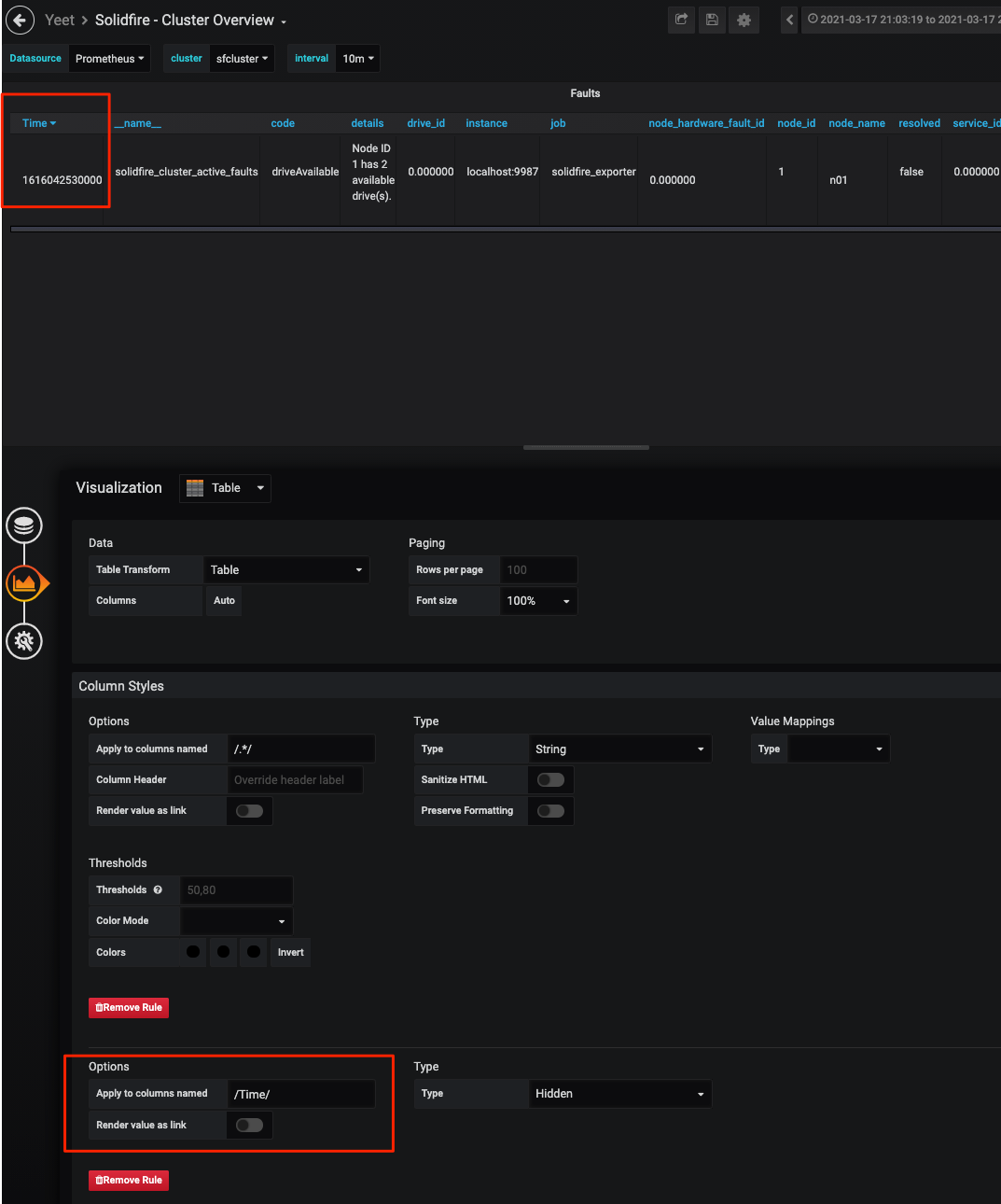Grabana provides a developer-friendly way of creating Grafana dashboards.
Whether you prefer writing code or YAML, if you are looking for a way to version your dashboards configuration or automate tedious and error-prone creation of dashboards, this library is meant for you.
- provide an understandable abstraction over dashboards configuration
- expose a developer-friendly API
- allow IDE assistance and auto-completion
- generate Go code from existing dashboards
Note: Grafana 8+ is required, with unified alerting enabled.
grafana-foundation-sdk: A set of tools, types and libraries for building and manipulating Grafana objects – built by Grafana Labsdark: (grafana) Dashboards As Resources in Kubernetes
Dashboard configuration:
builder := dashboard.New(
"Awesome dashboard",
dashboard.AutoRefresh("5s"),
dashboard.Tags([]string{"generated"}),
dashboard.VariableAsInterval(
"interval",
interval.Values([]string{"30s", "1m", "5m", "10m", "30m", "1h", "6h", "12h"}),
),
dashboard.Row(
"Prometheus",
row.WithGraph(
"HTTP Rate",
graph.DataSource("prometheus-default"),
graph.WithPrometheusTarget(
"rate(prometheus_http_requests_total[30s])",
prometheus.Legend("{{handler}} - {{ code }}"),
),
),
),
)Note Existing dashboards can be converted to Go code using the
grabana convert-goCLI command.
Dashboard creation:
ctx := context.Background()
client := grabana.NewClient(&http.Client{}, grafanaHost, grabana.WithAPIToken("such secret, much wow"))
// create the folder holding the dashboard for the service
folder, err := client.FindOrCreateFolder(ctx, "Test Folder")
if err != nil {
fmt.Printf("Could not find or create folder: %s\n", err)
os.Exit(1)
}
if _, err := client.UpsertDashboard(ctx, folder, builder); err != nil {
fmt.Printf("Could not create dashboard: %s\n", err)
os.Exit(1)
}For a more complete example, see the example directory.
Dashboard configuration:
# dashboard.yaml
title: Awesome dashboard
editable: true
tags: [generated]
auto_refresh: 5s
variables:
- interval:
name: interval
label: Interval
values: ["30s", "1m", "5m", "10m", "30m", "1h", "6h", "12h"]
rows:
- name: Prometheus
panels:
- graph:
title: HTTP Rate
height: 400px
datasource: prometheus-default
targets:
- prometheus:
query: "rate(promhttp_metric_handler_requests_total[$interval])"
legend: "{{handler}} - {{ code }}"Dashboard creation (or automatically as a Kubernetes Resource, using DARK):
content, err := os.ReadFile("dashboard.yaml")
if err != nil {
fmt.Fprintf(os.Stderr, "Could not read file: %s\n", err)
os.Exit(1)
}
dashboard, err := decoder.UnmarshalYAML(bytes.NewBuffer(content))
if err != nil {
fmt.Fprintf(os.Stderr, "Could not parse file: %s\n", err)
os.Exit(1)
}
ctx := context.Background()
client := grabana.NewClient(&http.Client{}, grafanaHost, grabana.WithAPIToken("such secret, much wow"))
// create the folder holding the dashboard for the service
folder, err := client.FindOrCreateFolder(ctx, "Test Folder")
if err != nil {
fmt.Printf("Could not find or create folder: %s\n", err)
os.Exit(1)
}
if _, err := client.UpsertDashboard(ctx, folder, dashboard); err != nil {
fmt.Printf("Could not create dashboard: %s\n", err)
os.Exit(1)
}Check out the documentation to discover what Grabana can do for you.
This library is under the MIT license.



